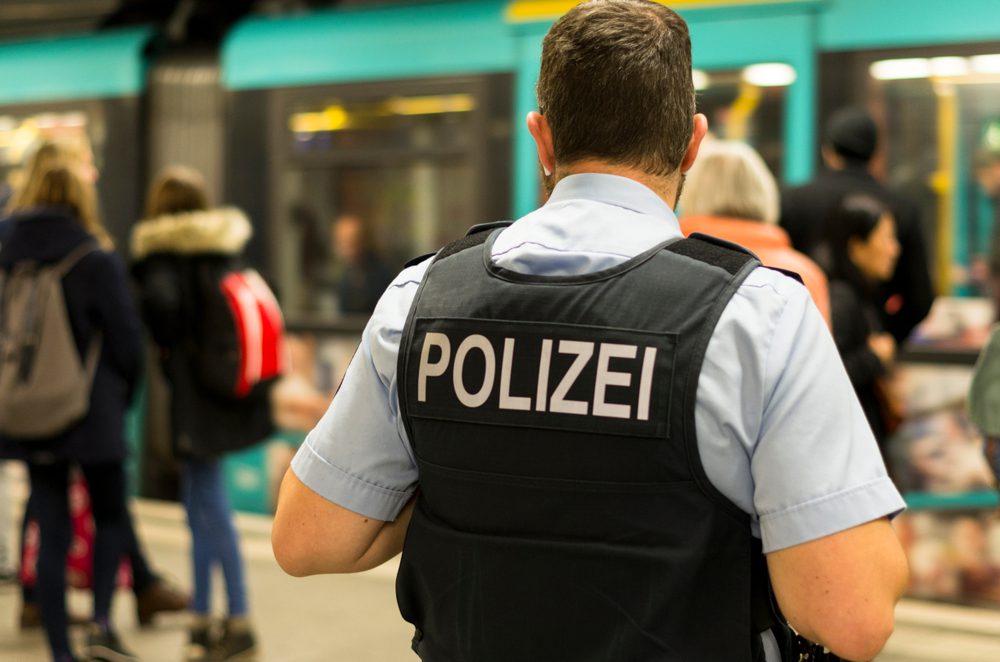
The number of criminal offenses, including violent knife attacks and sexual assaults, rose considerably on trains and at train stations in Germany over the past year. Official government figures reveal that incidents involving knife attacks more than doubled compared to the previous year.
While the federal police registered 398,848 criminal offenses on trains and at train stations in 2022, an uptick of roughly 12% compared to the previous year, 336 knife attacks—82 on trains and 254 at train stations—were recorded, representing an increase of 102% year over year, the Hamburg-based newspaper Der Spiegel reports.
According to the statistics collected by the federal police last year, 71 suspects were investigated for violent crimes involving the use of knives on trains, 36 of whom were classified as “non-Germans”—just over 50%. In the previous year, that figure was six of 25, or 24%.
Of the nearly 400,000 criminal incidents, 14,155 were classified as assaults. There was a slight rise in assault cases involving “other dangerous tools” like baseball bats, at 97 (seven more than the previous year), and in assaults involving firearms, at 5, only two more than recorded in 2021.
Five people were killed in 2022, compared to two the year before. A total of 6,747 people suffered physical injuries during assaults last year, in contrast with 4,138 who suffered injuries from assaults in 2021: a 63% jump.
Additionally, instances of sexual assault carried out on trains and in train stations across Germany increased markedly, rising from 697 in 2021 to 857 last year, a year-over-year increase of 23%.
Non-Germans represented 55% of the suspects in cases that involved serious physical injury, robbery, murder, and manslaughter.
News of the alarming trend comes less than two weeks after two young people were stabbed to death by a Palestinian asylum seeker while riding a regional train in Brokstedt, Schleswig-Holstein. Seven others were injured, some seriously, during the indiscriminate knife rampage.
The suspect, 33-year-old Ibrahim A., who had traveled to Germany during the European migrant crisis of 2015, had prior to this attack carried out 12 criminal offenses, including six violent crimes, since his arrival. The assault took place just days after the suspect had been released from prison after a psychiatrist concluded that he was not a danger to himself or others. He had been in custody for a separate knife attack.
Following the deadly knife attack, Interior Minister Nancy Faeser (SPD) told the German press:
I understand anyone who wonders why this violent criminal was released so quickly and whether everything was done to check whether he was a danger to others. The judiciary must address this question. In the same way, it must be checked carefully whether he could have been deported—no matter how difficult that is legally, especially for stateless people.
Alternative für Deutschland (AfD) co-leader Alice Weidel, however, blames Interior Minister Nancy Faeser (SPD) and the left-liberal traffic light coalition for failing to deport the repeat offender. On social media, she wrote,
Several violent and sexual offenses, but the Palestinian Ibrahim A. was not deported. If that traffic light [coalition had] reacted appropriately considering the large number of [criminal] acts, the victims could still be alive. My thoughts are with their relatives.
Weidel’s sentiments were echoed by both Free Democrat Party (FDP) interior expert Manuel Hoferlin and Christian Democratic Union (CDU) domestic policy spokesman Alexander Throm. Hoferlin said:
The fact that the suspect was not in prison and was still in the country despite many previous convictions shows that there are significant deficits in the right of residence and repatriations from the Merkel era.
Throm told the German press:
For more than a year, the traffic light [coalition] has been promising its repatriation offensive for offenders and those who are at risk. None of that happened. On the contrary, under this federal government, fewer and fewer criminals and dangerous persons are being returned.
